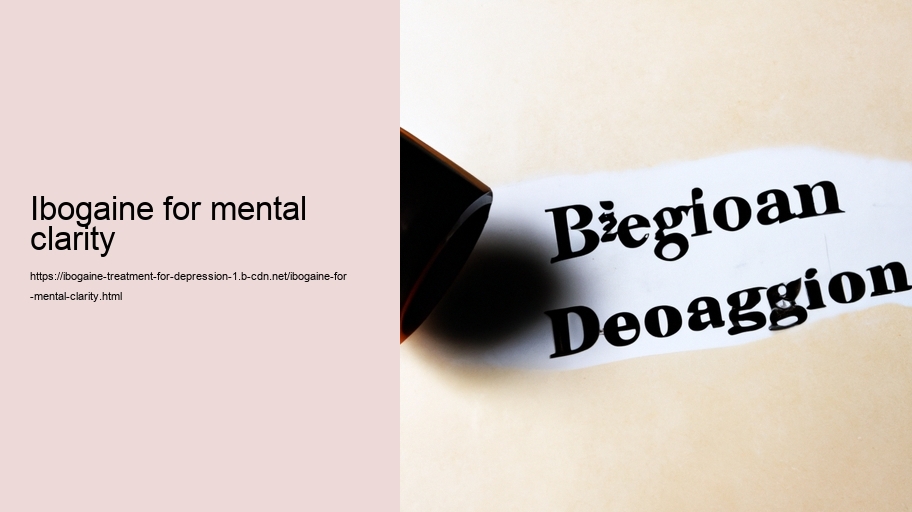Title: Ibogaine: A Controversial Ally for Mental Clarity
The human mind is an intricate labyrinth of thoughts, emotions, and memories. Within its complex folds lies the potential for immense clarity as well as the propensity for confusion and distress. In this endless quest for mental acuity, a controversial substance known as ibogaine has emerged, claiming to offer not only relief from various addictions but also promising enhanced mental clarity. This essay delves into the enigmatic world of ibogaine, exploring its origins, its supposed benefits for cognitive function, and the debate that surrounds its use.
Ibogaine is a naturally occurring psychoactive compound derived from the root bark of the African shrub Tabernanthe iboga. For centuries, it has been used in traditional spiritual ceremonies by indigenous communities in West Africa. It wasn't until the 20th century that ibogaine piqued the interest of Western medicine when Howard Lotsof accidentally discovered its potential in treating opioid addiction. Since then, it has become a subject of fascination among those seeking alternative therapies.
Proponents of ibogaine therapy tout it as a catalyst for profound psychological introspection and renewal. Anecdotal reports suggest that under its influence, individuals can experience vivid visions that often lead to personal insights and emotional catharsis. This process is said to help clear away mental cobwebs—reorganizing chaotic thought patterns and facilitating a state of heightened self-awareness and focus.
The mechanism behind these effects may lie in ibogaine's ability to modulate neurotransmitter systems within the brain—particularly those involving serotonin and dopamine—which play key roles in mood regulation and cognition. By resetting these neural circuits, ibogaine could theoretically aid in breaking cycles of compulsive behavior while fostering a clearer state of mind.
However, despite anecdotal claims supporting its efficacy as a tool for enhancing mental clarity, scientific evidence remains sparse due to limited research. Ibogaine’s legal status further complicates matters; it is classified as a Schedule I substance in the United States and is illegal or highly regulated in many other countries due to concerns about safety and potential for abuse.
Safety indeed stands at the forefront of debates surrounding ibogaine's use—a point which cannot be overstated. The compound has been associated with serious adverse effects including cardiac complications which can be fatal. Consequently, any consideration towards utilizing ibogainefor therapeutic purposes must be approached with extreme caution under professional supervision.
Moreover, ethical questions arise when dealing with substances that have such potent effects on consciousness—especially when they're used outside conventional medical frameworks without comprehensive clinical oversight or standardized dosing guidelines.
In conclusion, while there are stories extolling ibogaine’s ability to slice through mental fog like sunlight through clouds—providing users with newfound lucidity—the lack of rigorous clinical data combined with significant health risks casts shadows over these claims. Until more research illuminates both the efficacy and safety profile of this mysterious alkaloid better understanding will remain elusive.
As we continue our shared journey towards achieving greater mental clarity amidst life’s cacophony we must weigh our options carefully considering not just what might provide immediate illumination but what ensures sustained light along our paths toward wisdom and well-being.
